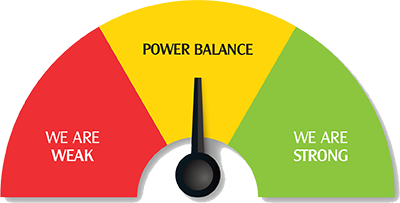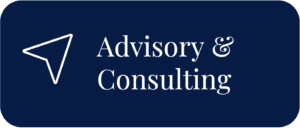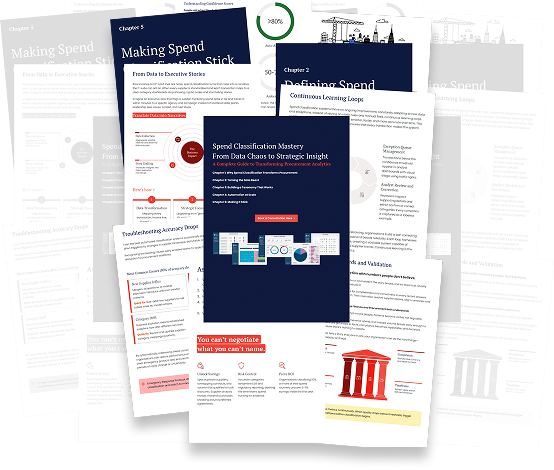
Procurement
Strategy & Advisory
Transform Your Procurement & Supply
Operations with Expert Guidance.
Fulfilling savings targets is just the beginning, its not the destination.
Are you merely hitting your savings targets, or are you driving innovation and value? Can your procurement function be optimised to achieve more than just cost reductions? At Comprara, we provide procurement advisory and consulting services that go beyond traditional methods, offering a strategic approach to transform your procurement operations.
We partner with you to implement procurement strategies that deliver measurable outcomes. From optimising category management to enhancing supplier relationships, we ensure that every aspect of your procurement process, team and operations is strategically aligned with your goals. Together, we will redefine your procurement journey, turning it into a key competitive advantage.
Unlock Strategic Value with Procurement Strategy & Advisory
Consider this: saving just 1% of your annual spend has the same impact on your EBIT as increasing your revenue by 20%. While impressive, this is just the starting point for what strategic procurement can achieve.
Procurement: Your Commercial Hub
Procurement should be more than a cost-saving function; it should be a commercial hub generating adaptive ideas from global sources and driving meaningful change down the value chain. How can your procurement function become a catalyst for strategic transformation?
Delivering Tangible Value and Strategic Insight
How can you save and double down on value while improving spend visibility and compliance? We help you achieve these goals by offering tailored strategies that not only save costs but also enhance your overall procurement effectiveness. Our approach ensures that you are not just meeting targets but exceeding them, with improved compliance and spend visibility.
Viewing Opportunities Through Multiple Lenses
Our deep expertise in procurement allows us to gather and analyse critical information, empowering you to make smart, informed business decisions. Whether you’re in the private or public sector, our cross-industry experience ensures you get a comprehensive, unbiased view of your organisation and the best strategies to adopt.
Unlock Your Procurement Potential with Our Maturity Assessment
Ready to transform your procurement function into a strategic powerhouse? Our Procurement Maturity Assessment can help you navigate your way to success.

Get your Complimentary Category Strategy Tool!

Sign-up here and you will receive it
by email a few minutes later.
No strings attached.
Procurement Consulting Services

Strategy & Advisory
Your Local Leading Procurement Consultants
As Australian-based procurement consultants with national reach, we understand the nuances of local industries and government procurement requirements alike.

Government
organisations
View here >>
Publicly listed
companies
View here >>
Not-for-profit
organisations
View here >>
Privately owned
business
View here >>Procurement: Thought Leadership
From our collaborators who love open source thinking and participation.
Blog >
Maverick Spend Management: A Tactical Guide to 11 Stakeholder Archetypes
You’ve read the framework (See part 1). You understand the relationship-process matrix. You know where your team sits on the spectrum. But here’s the thing about frameworks: they’re excellent for diagnosis, less useful when someone from sales is standing in your office at 4:47pm on Friday demanding you set up…
Read more.

How Procurement Leaders Use Data to Shape Strategy
Does procurement have a credibility problem? And if so, why? Most procurement functions deliver significant, measurable impact. Thus, it’s not because it lacks value. The problem is communication. Too often, procurement speaks in operational language to an audience that thinks in strategic terms. It reports activity when executives want outcomes….
Read more.

How Do You Handle Internal Stakeholders Who Bypass Procurement?
If you’ve worked in procurement for more than a week, you’ve lived this scene: A department urgently needs something. They’ve already spoken to the supplier, negotiated terms, maybe even shaken hands on it. Then, almost as an afterthought, they come to you. Not for advice. Not for strategy. Just to…
Read more.

The Single Front Door: Operational Orchestration That Frees Procurement for Value
Why Procurement Can’t Scale Simple Purchases Most procurement leaders feel the same pressure from two directions at once. From the business: “Make it easy. Make it fast. Don’t slow us down.” From governance: “Keep us compliant. Protect budgets. Reduce risk. Make suppliers perform.” The result is predictable: procurement becomes the…
Read more.
Frequently Asked Questions
-
What is a procurement strategy, and why is it important?
A procurement strategy is a structured roadmap for how an organisation sources and manages the goods and services it needs. It defines not just who we buy from and at what cost, but the governance, operating model, supplier portfolio, digital roadmap, and ESG commitments that underpin sourcing decisions.
A robust procurement strategy matters because it:
- Aligns procurement with business and financial goals — from growth to working capital optimisation.
- Builds resilient, diversified supply networks, mitigating geopolitical, commodity, and climate risks.
- Embeds ESG and Scope 3 carbon reduction into sourcing decisions.
- Enables digitalisation — driving efficiency, data visibility, and predictive risk management.
- Unlocks supplier-led innovation by moving beyond transactional buying into long-term partnerships.
Without strategy, organisations default to reactive buying: costs escalate, supply risk grows, and opportunities for innovation or sustainability leadership are lost.
Comprara helps organisations design and embed procurement strategies that integrate resilience, sustainability, and digital enablement, ensuring procurement is fully aligned with business goals.
-
How does procurement advisory help businesses make better decisions?
Procurement advisory brings external expertise, tools, and objectivity that many internal teams cannot access at scale. Effective advisory support helps organisations make better sourcing and investment decisions through:
- Data-Driven Insights – Clean-sheet costing, benchmarking, and predictive analytics to illuminate true Total Cost of Ownership (TCO) and supplier performance.
- Risk Economics – Scenario modelling, resilience ROI, and hedging strategies to balance cost with security of supply.
- Best Practices & Market Knowledge – Lessons drawn across industries to accelerate improvement and avoid common pitfalls.
- Digital Enablement – Independent guidance on e-sourcing, P2P, CLM, and supplier risk platforms, plus support with data governance.
- Change Management & Capability Uplift – Helping organisations redesign processes, align stakeholders, and embed new behaviours sustainably.
- Value Realisation Tracking – Establishing KPIs, baselines, and governance so savings, resilience, and ESG commitments are auditable and CFO-validated.
The best advisors leave behind not dependency, but stronger internal capability and a procurement function able to compete at the highest level.
Comprara provides independent procurement advisory that combines analytics, best practice, and capability building — ensuring decisions are data-driven and leave lasting capability uplift.
-
What are the key elements of an effective procurement strategy?
An effective procurement strategy balances cost, risk, service, cash, innovation, and ESG outcomes. The key elements include:
- Spend Analysis & Category Management – Insight-driven strategies for each category, aligned to market dynamics and business priorities.
- Supplier Portfolio Design – Differentiated sourcing mix (single vs multi-sourcing, local vs global) supported by Kraljic segmentation.
- Demand & Specification Management – Challenging requirements to eliminate waste, reduce complexity, and co-design with suppliers.
- Risk & Resilience Framework – Multi-tier visibility, contingency plans, hedging, and scenario triggers.
- Technology & Data Integration – eSourcing, P2P, CLM, SRM, risk tools, underpinned by clean data and analytics.
- Performance & Benefits Measurement – Clear KPIs (TCO, OTIF, Scope 3 reduction, innovation pipeline, DPO/inventory turns) and benefits tracking governance.
- Stakeholder & Executive Engagement – Embedding procurement strategy into finance, operations, and product roadmaps.
- Innovation & Sustainability – Joint Business Planning with suppliers, co-development of new solutions, and decarbonisation roadmaps.
- Talent & Capability – Building skills in analytics, negotiation, ESG, and digital procurement.
This is not a one-off exercise: it’s a living strategy reviewed quarterly against market conditions and business goals.
Comprara works with organisations to turn these principles into action — from spend analytics through Purchasing Index to skills uplift via the Academy of Procurement.
-
How can advisory services improve supplier relationships?
Supplier relationships are a competitive differentiator. Advisory services help organisations move from transactional management to strategic partnerships by bringing structure, discipline, and innovation into SRM (Supplier Relationship Management).
Key ways include:
- Supplier Segmentation – Categorising suppliers by strategic importance and applying differentiated engagement models.
- Joint Governance – Establishing executive sponsors, QBRs, joint risk registers, and innovation councils.
- Performance Management – Transparent scorecards, leading and lagging KPIs, and gain-share mechanisms.
- Collaborative Planning – Co-developing demand forecasts, decarbonisation roadmaps, and innovation pipelines.
- Commercial Optimisation – Outcome-based contracts, open-book costing, and supply chain finance to strengthen SMEs while meeting DPO targets.
- Capability & Development – Supporting supplier training, compliance, and continuous improvement programmes.
- Multi-Tier & ESG Visibility – Mapping sub-tier suppliers and ensuring traceability for Scope 3, human rights, and regulatory compliance.
The outcome is not just better supplier performance, but greater resilience, lower TCO, accelerated innovation, and measurable ESG progress — with trust and transparency at the core.
Comprara helps organisations structure supplier relationships for success, from establishing governance frameworks to building innovation pipelines and embedding ESG into supply chains.
-
What are common pitfalls in category management?
Category management fails when analysis, alignment, or execution discipline are lacking:
- Weak market analysis → unrealistic strategies.
- Poor stakeholder engagement → lack of adoption.
- Over-focus on cost only → ignoring quality, service, or innovation.
- Inadequate supplier due diligence → risky partnerships.
- Compressed timelines → shallow strategies.
- Poor change management → resistance and low adoption.
- No success metrics → no proof of value.
- Under-resourced teams → superficial outcomes.
- Neglect of post-sourcing SRM and contract management.
- One-sise-fits-all approaches → ignoring category differences.
Comprara helps organisations avoid these pitfalls by applying data, market insight, and structured governance to ensure category management delivers lasting value.
-
What is the procurement lifecycle, and what are its key stages?
The procurement lifecycle encompasses all activities from identifying business needs through contract closure, providing a structured framework for managing purchasing activities:
Needs Assessment and Planning - Identifying business requirements, defining specifications, determining procurement approach, and developing sourcing strategies aligned with organisational objectives and constraints.
Market Research and Supplier Identification - Conducting market analysis, identifying potential suppliers, evaluating supplier capabilities, and developing comprehensive understanding of supply market dynamics and opportunities.
Sourcing Strategy Development - Creating detailed sourcing strategies including evaluation criteria, negotiation approaches, contract structures, and risk management plans tailored to specific requirements and market conditions.
Supplier Selection and Evaluation - Managing competitive processes including RFP development and distribution, proposal evaluation, supplier presentations, and final selection based on predetermined criteria and organisational needs.
Negotiation and Contract Award - Conducting commercial negotiations, finalising terms and conditions, securing necessary approvals, and executing contracts that optimise value while managing risks appropriately.
Contract Management and Performance Monitoring - Implementing contracts, monitoring supplier performance, managing relationship issues, and ensuring compliance with agreed terms and service levels throughout the contract term.
Supplier Relationship Management - Building and maintaining strategic relationships, conducting performance reviews, facilitating improvement initiatives, and managing collaboration opportunities that enhance mutual value.
Contract Renewal or Termination - Evaluating contract performance, making renewal decisions, renegotiating terms, or managing contract termination and supplier transition as required by business needs and performance outcomes.
Continuous Improvement and Optimisation - Analysing procurement outcomes, identifying improvement opportunities, implementing process enhancements, and incorporating lessons learned into future procurement activities.
-
What are the four main types of procurement?
The four main types of procurement categorise purchasing activities based on their relationship to core business operations and strategic importance:
Direct Procurement - Purchasing goods and materials that directly contribute to the organisation's final products or services, including raw materials, components, sub-assemblies, and manufacturing inputs that become part of the end product.
Indirect Procurement - Acquiring goods and services that support business operations but don't directly contribute to the final product, including office supplies, IT equipment, facilities management, professional services, and administrative support.
Services Procurement - Sourcing external expertise and capabilities including consulting services, maintenance contracts, outsourced functions, temporary staffing, and specialised professional services that supplement internal capabilities.
Capital Procurement - Purchasing long-term assets and equipment including machinery, vehicles, real estate, technology infrastructure, and other capital investments that the organisation will use over multiple years to support operations.
Key Distinctions:
Strategic Importance - Direct procurement typically has higher strategic importance due to its direct impact on product quality, cost, and customer satisfaction, while indirect procurement focuses more on operational efficiency and cost optimisation.
Supplier Relationships - Direct procurement often requires closer, more strategic supplier relationships for innovation and quality, while indirect procurement may emphasise standardisation and efficiency.
Risk Management - Each type requires different risk management approaches, with direct procurement focusing on supply continuity and quality risks, while indirect procurement emphasises compliance and cost control.
Sourcing Strategies - Different procurement types require tailored sourcing approaches, contract structures, and management strategies based on their unique characteristics and business impact.
Performance Measurement - Success metrics vary across procurement types, with direct procurement focusing on quality and innovation metrics while indirect procurement emphasises cost savings and process efficiency.
-
How does Comprara approach procurement transformation?
Procurement transformation fails when it is treated as a “project” or a technology rollout. Comprara approaches transformation as a continuous capability journey built on three integrated pillars:
- Data-Driven Insights – Using Purchasing Index benchmarking and analytics, Comprara gives organisations objective clarity on cost, risk, and performance. This evidence base ensures that transformation targets are realistic, measurable, and aligned to market reality.
- Capability Uplift – Transformation is only sustainable if people can deliver it. Through SkillsGAP Analysis, teams are benchmarked against world-class capability frameworks, and the Academy of Procurement builds targeted training pathways to close gaps.
- Practical Execution – Instead of relying on generic frameworks, Comprara helps organisations implement new operating models, embed digital tools, and ensure adoption through coaching and hands-on delivery.
The result: procurement transformation becomes measurable, trackable, and embedded in business-as-usual — not a one-off exercise, but a structural uplift in how procurement delivers value.
Comprara acknowledges the traditional Aboriginal owners of country, recognises their continuing connection to land, water and community and pays respect to Elders past, present and future.














